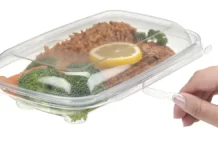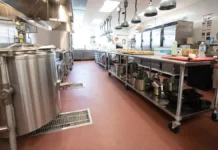
If you want to bring your cuisine and unique approach to hospitality into the world, you’re going to need to spend some time on administrative tasks before your dream becomes reality. It’s just part of the process.
Because the restaurant industry is so highly regulated, applying for all of the correct permits and licenses is no easy task, but it’s an important one. Failure to obtain all of the proper paperwork can result in hefty fines and possibly even the closure of your business. No one wants that!
Set yourself up for success with this checklist that outlines the 12 licenses and permits you’ll need to open a restaurant. But, keep in mind: Each state has a different filing fee and application process, so do your own due diligence by researching your city and state accordingly.
One: Registered Business Name
Thinking up a business name is no easy task, but once you’ve found the perfect one, the first thing you should do is register it as a form of identity protection. You can register a business name in one of three ways.
First, by creating a business structure, which is the type of business you’ll run. There are different business structures to choose from, like a Sole Proprietorship, Limited Liability Company, and/or a Corporation.
The second option is to file for a “DBA” (doing business as). A DBA is the operating name of a company, as opposed to your company’s legal name.
Finally, you may also choose to file a trademark application. Doing so prevents other businesses from using your business name, whether it’s in the form of words, titles, symbols, devices or a combination of these.
Two: Business License
Once you’ve registered your business, it’s time to get an actual business license. A business license gives you permission to legally operate your restaurant within a specific jurisdiction, which means the license is based on your restaurant’s address, so you’ll need a location before you apply for this one.
Three: Food Service License
To serve food at your restaurant, you need an official food service license. In order to get one, a city or county health department official will visit your establishment in-person to inspect it and ensure that you’re adhering to all of the laws and food safety regulations. And, some food licenses also require that your staff complete a food safety training program. It’s important to note that once you acquire a food service license, your restaurant is still subject to regular inspections for ongoing adherence to governmental guidelines.
Four: Food Handler’s Permit
In addition to the food service license, you’ll also need a food handler’s permit, which ensures that your restaurant meets regulations regarding food sanitation, storage, protection and preparation. Some states require that anyone handling food complete a food safety course to obtain and maintain their individual permits.
Five: Liquor License
If you plan to serve alcohol at your restaurant, state authorities require you to have a liquor license. Liquor licenses come in different “series” and the series you apply for determines what type of alcohol you can sell—i.e. liquor vs. only beer and wine—as well as where on the premises that you can actually serve the drinks.
Six: Building Health Permit
A building health permit indicates that your restaurant’s physical structure complies with sanitation regulations and is issued by your local government. Not every state or province requires a building health permit, but, similar to a food service license, your location will be subject to routine inspections in order to maintain the permit.
Seven: Sign Permit
Planning to put up some restaurant signage? We sure hope so. Branded signage draws attention to your new restaurant, but, of course, you’ll need a permit for that, too! This permit comes from your city or town government, which often has regulations on the size and location of your signs. In most cases, you’ll need approval from your landlord, too, as they may have their own set of rules or guidelines.
Eight: Music or Live Entertainment License
Whether you’re playing background music or hosting a live band, you need to apply for either a music license or a live entertainment license. Music licenses are acquired from companies that hold rights for copyrighted music. There are several private companies that hold such rights, but two of the largest are the American Society of Composers, Authors and Publishers, and Broadcast Music Incorporated. There are also restaurant music streaming services out there that cover all of your needs in one platform.
Nine: Dumpster Placement Permit
There’s no getting around it. Your chefs need a place to dispose of food waste, which means you’ll need a nearby dumpster. If you don’t already have one in your area, you may need to obtain a dumpster placement permit, which allows you to place a dumpster outside of your restaurant that can be used for food waste and trash disposal.
Ten: Seller’s Permit
A seller’s permit, also known as a sales tax permit, allows your state to identify your restaurant as a collector of sales tax. Seller’s permits are granted by your local government and, if you need a seller’s permit, you likely also need a resale permit.
Eleven: Resale Permit
This permit allows your restaurant to make nontaxable purchases on things like wholesale food and protects your business from the double collection of sales tax on those wholesale purchases. What this means is, rather than collecting tax when you buy the product initially, tax is collected when your customer buys that product from you. Obtain a resale permit through your local government.
Twelve: Certificate of Occupancy
Ah, the grand finale! A certificate of occupancy indicates that your restaurant passed all of its final building inspections, and is deemed safe to occupy and operate. To receive a certificate of occupancy, your restaurant will be inspected by a local building or zoning department for adherence to mechanical, plumbing, electrical, fire safety and general building requirements.
Yes, the process of obtaining restaurant permits and licenses can feel daunting, but it’s absolutely essential to your business success. Penalties and lack of acquiring the right paperwork could close your doors, so make sure you research the licenses and permits that are specific to your jurisdiction. And, definitely make sure to start your application process early on to allow for processing times and possible delays.

























